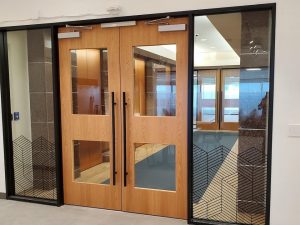A colonoscopy lets doctors spot abnormal growths in your large intestine — including polyps, which may turn into cancer. They can also remove them during the procedure.
Before the test, your doctor will explain how to prepare for it by changing your diet and consuming a laxative solution the night before and the morning of the exam.
Preparation
Getting a colonoscopy Denver isn’t fun, but it’s worth the effort. The procedure can spot and remove polyps, small growths that sometimes turn into colon cancer. It can also catch colon cancer early when it’s often easier to treat.
The day before your colonoscopy, you’ll start following a liquid diet and taking a laxative to empty your bowels. Your doctor will give you detailed prep instructions, so read them carefully. Be sure to ask about foods you shouldn’t eat, such as whole grains and seeds. Also, tell your doctor about any medications you take — especially those that thin your blood, such as aspirin; the newer anticoagulants, such as dabigatran (Pradaxa) and rivaroxaban (Xarelto); or heart medications that affect platelets, such as clopidogrel (Plavix).
The night before your colonoscopy, you’ll stop drinking all liquids except for the bowel prep solution prescribed by your doctor. You can drink water, clear juices like apple and white grape, or broth.
Sedation
A doctor will give you a small amount of sedation during your colonoscopy. This will make you very sleepy, and you may need to remember the procedure. But you will still be able to understand questions and answers and follow directions. You can also choose to have no sedation for your colonoscopy, but this will be more uncomfortable because you won’t be relaxed or asleep.
You will be asked to drink a special preparation that helps empty your bowel before the exam. This may cause diarrhea, so staying close to a bathroom is essential. It would help if you also had a ride home after the exam because you will be too tired to drive while under sedation.
Before the colonoscopy, an anesthesiologist will review your medical history and blood pressure to ensure you can safely receive sedation during the procedure. You should tell them about any health problems and all medications, vitamins, or supplements you take, even if unrelated to your colonoscopy.
Procedure
Your doctor will give you specific instructions about what to eat and drink for the day of your colonoscopy. These usually include a low-fiber diet and a liquid or transparent broth diet the evening before your procedure. You may also have to take a laxative.
Once you arrive at the hospital or outpatient center, a healthcare professional will place an intravenous line into your arm or hand to deliver sedatives and pain medicine directly to your bloodstream. You will be placed on an exam table and asked to change into a hospital gown.
Tell your gastroenterologist about your medications, including over-the-counter drugs and supplements. Some medicines can interfere with bowel preparation or the safety of a colonoscopy, so your doctor might ask you to stop taking them temporarily. These include insulin or other diabetes medications; aspirin products; arthritis medicines such as ibuprofen; the blood thinners warfarin (Coumadin, Jantoven); newer anticoagulants such as dabigatran (Pradaxa) or rivaroxaban (Xarelto); and heart medications that affect clotting, such as clopidogrel (Plavix). Most other prescription and over-the-counter medications can continue as usual.
Recovery
Some gas and bloating are expected after the procedure as you clear out the air injected into your colon. This discomfort should go away with time. After the exam, you may also notice small amounts of blood with your first bowel movement. This is not unusual, but if the bleeding persists or you are concerned, contact your doctor immediately.
After the colonoscopy, your doctor will probably ask you to follow a liquid-only diet for a day or two. The liquid diet is typically water, broth, tea, and coffee without milk. For the rest of the time, you should eat soft, low-residue foods that won’t irritate your digestive tract. You’ll also drink plenty of fluids to stay hydrated. Most people can resume their regular diet after just one or two days. However, those who opt for no sedation will need more recovery time. This is especially true if you use an enema for your bowel prep.






Leave a Reply